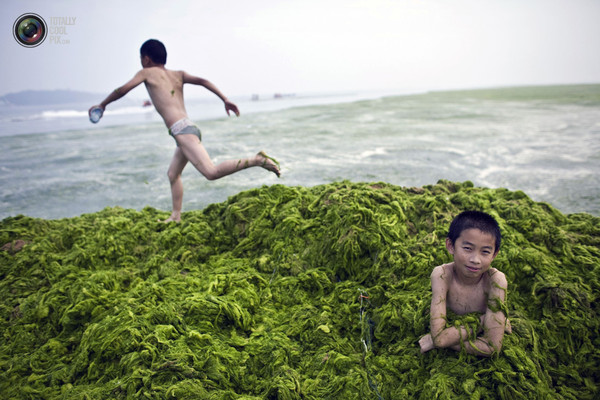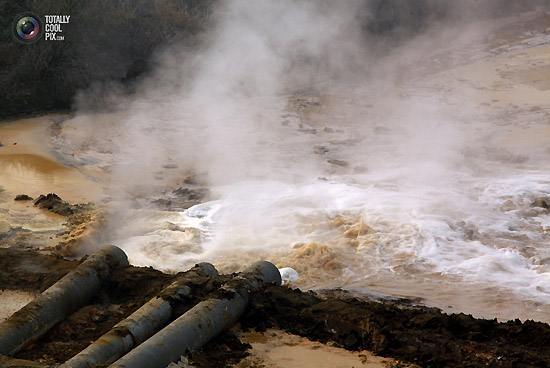I Definition of water pollution
Water pollution refers to the phenomenon of pollutants entering rivers, lakes, oceans or groundwater, causing changes in the physical and chemical properties of water quality and sediment or the composition of biological communities, resulting in deterioration of water quality, reduction of the use value and function of water bodies, harm to human health or destruction of the ecological environment.

II The main source of water pollution in China
1.Industrial wastewater
In industrial production, heat exchange, product transportation, product cleaning, beneficiation, slag removal, production reaction and other processes will produce a large amount of wastewater. The main enterprises that produce industrial wastewater are primary metal processing, food processing, textile, papermaking, mining, smelting, chemical industry and so on.
2.Domestic sewage
Domestic sewage is sewage from households, institutions, commercial and urban utilities and urban runoff. The gradual decay and decay of fresh municipal sewage results in a decrease in the dissolved oxygen content and an anaerobic degradation reaction that produces hydrogen sulfide, mercaptan, acetamine and skatine, giving the water a foul odor. The composition of domestic sewage 99 water, solid impurities less than 1% mostly non-toxic substances, in addition to a variety of detergents and trace metals; Domestic sewage also contains a large number of miscellaneous bacteria, mainly coliform bacteria. In addition, the content of nitrogen and phosphorus in domestic sewage is relatively high, mainly from commercial sewage, urban ground runoff and feces, detergents and so on.
3. Hospital sewage
General general hospital, infectious disease hospital, tuberculosis hospital and other discharged sewage contains a large number of pathogens, such as typhoid bacillus, dysentery bacillus, tuberculosis bacillus, pathogenic protozoa, enterovirus, adenovirus, hepatitis virus, schistosoma eggs, hookworm, ascaris eggs and so on. These pathogens can often survive for a long time in the external environment. Therefore, after contaminating water or soil with hospital sewage, diseases can be transmitted through drinking water or food for a longer period of time. Stop the spoon outside,Shellfish in water has the ability to concentrate bacteria and viruses, so after water pollution, shellfish in raw drinking water has great danger
4. Runoff and infiltration of farmland water
In the vast rural areas of China, it is customary to use untreated human and animal feces and urine to water vegetable fields and farmland. Over the past few decades, the amount of fertilizers and pesticides has increased rapidly, and after fertilization or the use of pesticides in the soil, through the erosion of rainwater or irrigation water and the infiltration of soil, the remaining fertilizers and pesticides can enter the surface water and groundwater through the runoff of farmland. There are a lot of pathogens, suspended solids, fertilizers, pesticides and decomposition products in farmland runoff. There are many kinds of pesticides, different properties, so the size of toxicity is not the same, some pesticides are non-toxic or basically non-toxic, some can cause acute and chronic poisoning, some may cause cancer, mutagenicity and teratogenicity, and some have adverse effects on reproduction and immune function.
5.Waste stacking, burying and dumping
Some waste temporarily stored in the open air can be brought into the water body due to rain or wind, some waste is artificially dumped into the water body, and some waste that is difficult to dispose of is buried deep underground, but if the underground disposal project is set up improperly or without any treatment to landfill, it will affect the ground around the disposal area
III The main reasons for the severe form of water pollution in China
1, the extensive economic growth mode has not fundamentally changed, enterprises simply pursue economic benefits, ignoring environmental benefits and ecological benefits. In the industrial development, the water consumption is large and the utilization rate is low. The discharge of pollutants is large, exceeding the water environment capacity.
2, water pollution prevention and control legislation is not sound enough, law enforcement is not strong enough, cadres and the masses are not high awareness of environmental protection and law-abiding. 3. Regional economic development and regional environmental capacity are not compatible, which is also an important cause of water environmental pollution. In the past, regional environmental capacity was often ignored when determining the direction of regional industrial development and regional productivity layout. The serious regional water pollution of major rivers in our country is directly related to the unreasonable industrial structure and layout of river basins to a large extent.
4, the impact of natural factors to a certain extent aggravated the deterioration of water environmental problems, increased the difficulty of water pollution prevention. The climate in the north of China is also obviously warming, the winter temperature in North China is rising, the surface runoff is decreasing, the evaporation is increasing, and the chance of drought is increasing. Due to the decrease of river runoff, the self-purification capacity of water body decreases, which aggravates the deterioration of water environment and leads to the occurrence of catastrophic flood disaster. The distribution of water resources in China is unevenly distributed in different regions, and the distribution of water resources is very inconsistent with the layout of population, economy and social development. These factors are also important aspects that lead to prominent water environmental problems.
IV Prevention and control of water pollution
1.Strengthen the prevention and control of industrial pollution, promote cleaner production in key enterprises, reduce emission intensity, reduce industrial pollution, and alleviate environmental pressure. Industrial pollution prevention is the focus of China's environmental protection work. First of all, we must eliminate and close a number of backward technology, serious pollution, waste resources of enterprises, and secondly, we must carry out circular economy practice. Implement clean production, make full use of resources at the source and the whole process of enterprise production, and minimize, recycle and harmless waste.
2. Promote advanced agricultural science and technology, and strengthen pollution control in agriculture and rural areas. The leaching loss of fertilizer and pesticide is the main cause of agricultural pollution.
So we should be reasonable fertilization, that is, to meet the growth of crops
The need is not excessive, and water-saving irrigation is implemented
Reduce the loss of fertilizer, rational use of pesticides, strict
According to the amount of pesticide application, research and development of broad-spectrum resistance to pests, insects, grass damage of pesticides, advocate the use of low toxicity, high efficiency and low residue pesticides, development and application of biological pest control technology.
3.accelerate the construction of urban sewage network, comprehensively improve the operational efficiency and management level of urban sewage treatment plants, promote water pollution prevention and control, and strive to improve the water environment. The construction of urban sewage treatment facilities and collection pipe network should be planned first, the layout and design scale of sewage treatment facilities should be reasonably determined, and the construction of sewage treatment facilities should be synchronized with the development of urban construction.
4. Protect the water environment, increase the protection of water sources, and prevent pollution of water sources. Development activities are strictly restricted within the water source protection zone. We will do a good job in preventing and controlling water pollution in key river basins, and ensure that the task of reducing water pollutants in key river basins is completed on schedule.
5.Strengthen environmental law enforcement and resolutely punish all kinds of illegal emissions. We will continue to clean up and rectify illegal polluters and protect people's health and environmental protection.
V Harm of water pollution
After water pollution, it will endanger people's health, through drinking water or the food chain, pollutants enter the human body, make people acute or chronic poisoning, but also can induce cancer. Water contaminated by parasites, viruses or other pathogenic bacteria can cause a variety of infectious and parasitic diseases. After the pollution of water resources, it is harmful to industrial and agricultural production, industrial water must be invested in more treatment costs, resulting in the waste of resources and energy, food industry water requirements are more stringent, water quality is unqualified, will make production halt, agricultural use of sewage, crop production, quality reduction, and even human and livestock damage, large areas of farmland are polluted, reduce soil quality; After the pollution of water resources, a large number of organic matter degrades in the water and releases nutrient elements, promoting algae clumping in the water, plants growing madly, making the water body poor ventilation, dissolved oxygen decline, and even oxygen-free layer, resulting in a large number of aquatic plants dying, the water surface is black, the water body is smelly, the water is interrupted and a large number of fish die, leading to the deterioration of the ecological environment.

- Pollution Waterpollution water pollution tackling china water pollution tackling policy water regulations pollution solve water pollution measures solve water pollution resource water china pollution policy combat water pollution research water on pollution china solve water pollution water china in